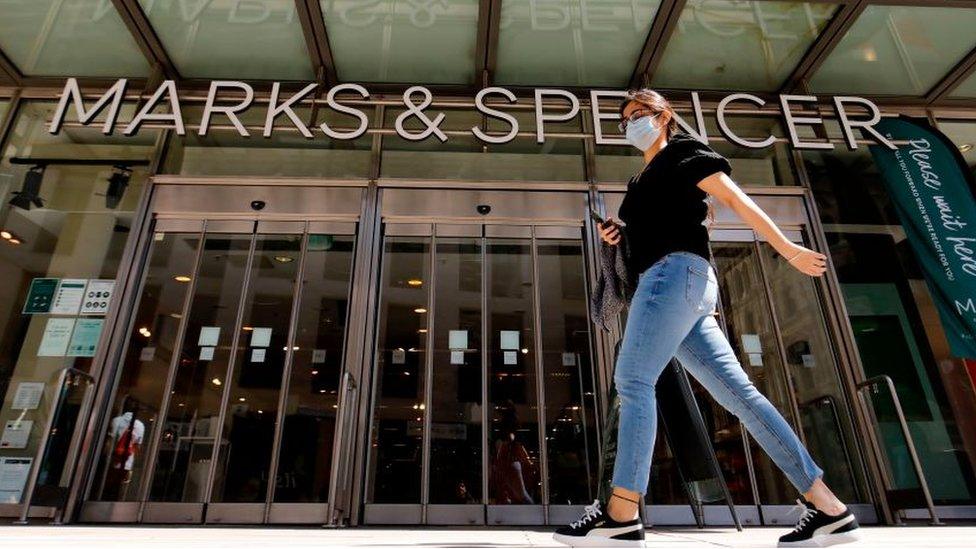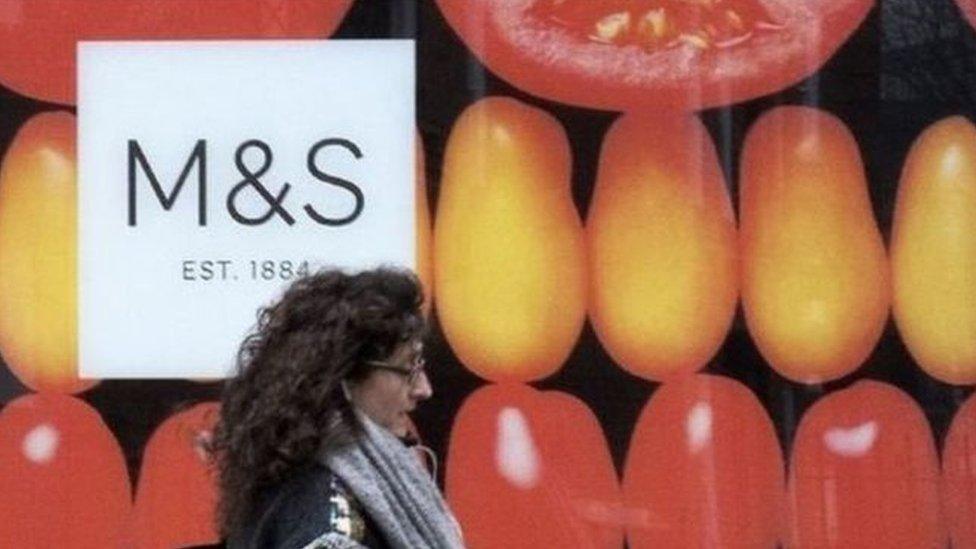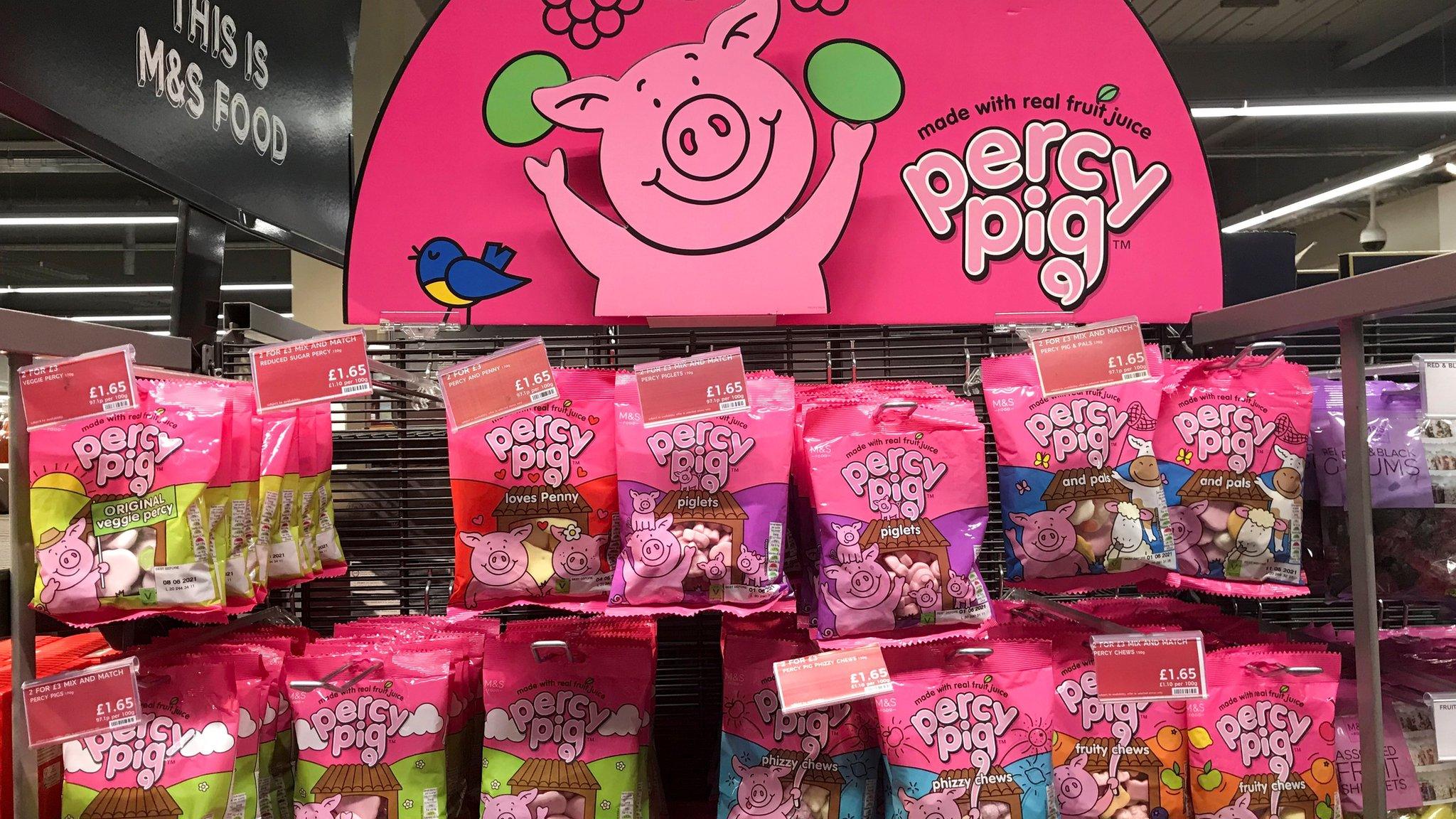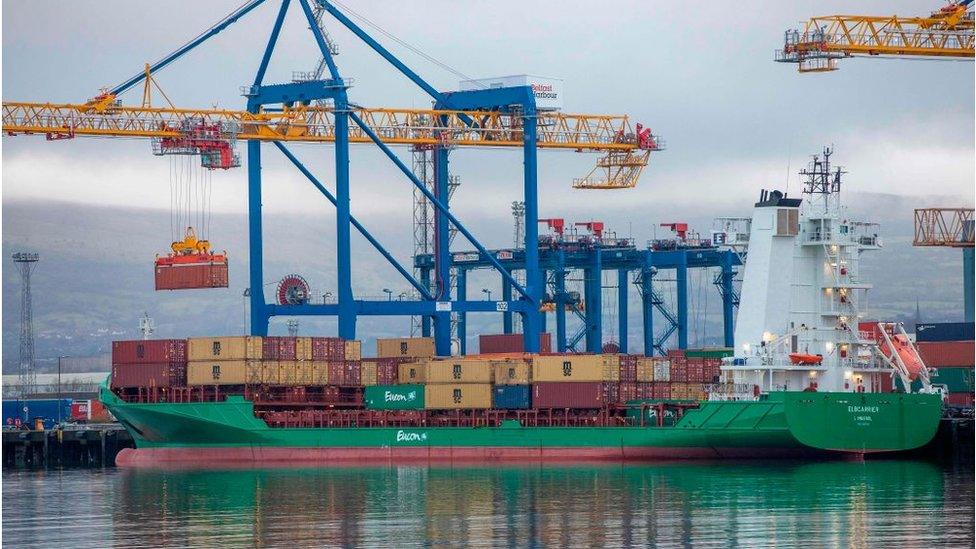M&S: Brexit and Irish Sea border cost retailer about £30m
- Published
- comments

Moving food products from GB into the EU's single market has become more expensive after Brexit
Marks & Spencer says Brexit and the Irish Sea border have added about £30m of costs to its island of Ireland business.
Products moving from GB to Northern Ireland and Ireland have faced a new range of checks and controls since January.
M&S says it is working on medium and long-term measures to reduce those costs.
These include local sourcing and re-routing products through European hubs.
Moving food products from Great Britain into the EU's single market has become more expensive after Brexit with official certification needed for all products of animal origin, such as meat and fish.
Some products also face tariffs on entry to the EU depending on how they have been distributed.
M&S says this has added somewhere in the range of £42m to £47m to the cost of doing business.
Of that, somewhere in the range of £27m to £33m relates to operations on the island of Ireland.
While those are significant sums they should be seen in the context of a business which turns over around £9bn per year.

M&S plans to review its European business models
M&S says it is "implementing multiple medium-term solutions to stabilise the business in both the North and the Republic".
It adds that is has already modified food exports into the Czech Republic and is working with its partners in France to review the model there.
M&S says it is also working on longer term plans with a review of European business models, local sourcing and re-routing product through European hubs.
George Riddell, Director of Trade Strategy at consultancy EY, tweeted that M&S was not unique in facing these costs.
He said: "This is something that we've been seeing across all different sectors - companies that have been able to afford the additional costs have absorbed them since January.
"Now they're starting to look at longer-term plans to try and address those costs in a sustainable way."
Related topics
- Published15 January 2021

- Published8 January 2021
